- Home
- Lisa Wingate
Dandelion Summer Page 32
Dandelion Summer Read online
Page 32
While J. Norm told some more cape stories, I watched the first stars come out. A lopsided moon rose and glittered through the tops of the pines, too shy to be up in the sky on its own. I remembered how Mrs. Lora used to sit outside with me on her old metal swing in the yard. Her house was on the edge of town, so we’d throw out food for the deer and watch them creep from the cedar brush, and we’d listen to the coyotes howling and yipping at the moon. I loved those times with Mrs. Lora. I loved the minutes when the last light of day was fading and a hush came over everything. I’d lay my head over on her shoulder and feel safe, even though my mama was someplace else—working, or out partying with her people from her job, or gone on a date with her latest guy. Sometimes I wasn’t even sure where she was, but I was okay knowing that Mrs. Lora and me would cook dinner and then sit in the swing together. Those were good nights. Safe nights.
Like this one.
I laid my head on J. Norm’s shoulder, and he didn’t seem to mind. He didn’t braid my hair like Mrs. Lora did—that would’ve been weird—but once he was finished with his story, we talked about the stars. He showed me how to find the constellations, and told me the Greek legends behind them, and how to measure distances by stretching out your arm and holding up your thumb. The moon rose with a big, bright star trailing from the tip. Venus, J. Norm said, and then he pointed out Saturn, and showed me how to find it in the constellation Virgo.
Venus and Saturn. I would’ve never known that, if it wasn’t for J. Norm.
Without Mrs. Lora, I’d never have learned how to snap a string bean or grow a tomato, or how good a batch of fresh purple hull peas tastes right after you shell them. Maybe that was the way things were supposed to be. Maybe not everyone got the mom who baked cupcakes and showed up at all the school parties. There weren’t enough of those to go around, so maybe God used other people, like Mrs. Lora and J. Norm, to make sure you learned how to shell a purple hull pea or find Saturn in the night sky.
It was all right for life not to be perfect. If you let it, if you didn’t close yourself off from the chance for it, life could still be good. Better than good.
Tonight was pretty close to perfect.
J. Norm’s voice turned into a soft hum, and after a while, I was only half listening. He was talking about the International Space Station and then something about living in Austria for a year while he was doing some kind of job over there. He lived in England, too, where he and his wife drove around on the wrong side of the road and visited castles.
“Someday, I want to have a job where I can go see castles on my day off,” I told him, and yawned. The day was starting to feel kind of long.
“I know you will.” The way he said it made me believe it. If J. Norm could come from a place like the house with the seven chairs and end up living all over the world and sending rockets to the moon, something amazing could happen in my life, too. Maybe something great was happening already, and this trip was only the beginning of it.
We went inside after that. J. Norm took the bedroom, and I took the sofa, because I wanted to watch TV.
I fell asleep sometime after midnight, and I dreamed about Cecile. I saw her in that big house, trapped behind a locked door when the smoke started coming in. She was smart, though. She plugged the bottom of the door with blankets, got the kids out of their beds, pushed them down low, and wrapped them in their quilts. I saw them huddled by the wall while she looked for a way out. Then she spotted the fireplace.
I smelled the ashes and the soot as she pulled the grate out of the way, opened the hatch door, whispered, “Come on. Come on, now, babies.”
In the dream, I was one of the children. She was saving me, too.
She handed the baby through last—bundled him tight in his blanket and gave him to his big brother, who cuddled the baby close inside the puppy-dog quilt, while all the other kids huddled around him.
And then I was Cecile. My face was her face. I was looking at the hatch, wondering if it was big enough for me to pass through. I was hoping, praying. I didn’t want to die there, so young still, never having a family of my own, never seeing much of the world. The smoke was thick, billowing toward the hole, clogging my nose and my mouth, choking me. The ash door was so small. I was afraid. I couldn’t breathe. I couldn’t think. I didn’t want the children to watch me die here. “You . . . go . . . on,” I coughed out. There was so much heat. So much smoke. I heard things falling overhead, glass breaking, dogs barking in the neighborhood. Someone would come soon. Surely someone would come.
“Come on, Cecile! Come on!” the children begged. The twins were crying, clutching their brother.
“Get . . . back. Get . . . away, now.” My heart pounded, filling every part of me with fear, with terror. I didn’t want to burn to death. I could feel the heat now. So much heat. Oh, Lord, I prayed. Oh, Lord, Lord, help me. Make me strong enough, small enough. . . .
I started through the opening, pulling, pushing, wiggling, the rocks and the steel doorframe not giving way. I put my arms through, then my head, and a shoulder. I couldn’t make it. The door was too small. My feet were burning, flames licking into the room.
I couldn’t breathe. The children were crying. I screamed. . . .
Air filled my lungs as I sat up on the hide-a-bed, my heart hammering, my throat burning, just like in the dream.
A dream. It was only a dream.
Lying back on the pillow, I saw the fire and the ash door and the kids like a movie in replay. Outside the window, light was pouring in, and when my eyes cleared up, I noticed that the alarm clock was blinking seven forty-five. Almost eight o’clock? I shucked off the covers and swung my feet around. Why hadn’t J. Norm gotten me out of bed? He never slept past the crack of dawn, as far as I could tell.
An uneasy feeling circled inside me like leftover smoke from the dream as I got up and tiptoed toward the bedroom. The door swung open a little when I knocked on it. I tried to peek inside, to make sure J. Norm wasn’t, like, standing there in his underwear or anything, but I could only see the wall and the edge of the bed. It was dark inside the room. No lights on.
I heard him breathing, then—raspy, short breaths, like he couldn’t get enough air. Pushing the door open the rest of the way, I took a step into the room. J. Norm was in the middle of the big bed, flat on his back, cocooned in the covers. “J. Norm? J. Norm, you awake? You all right?” He didn’t answer or move around. The worry in me slithered a little higher, like a snake making its way up my spine. “Hello-o . . . J. Norm? It’s morning. We’ve gotta hit the road, Jack.”
He still didn’t answer, and so I crossed the room to the bed, leaned over, and gave the covers a yank, rocking him back and forth. Maybe it was my dream or the mood it left behind, but I wanted to get out of this place. Something wasn’t right this morning.
“J. Norm. Let’s go.”
He moved finally, moaned, and turned his head away. A hand slid from under the sheet, the long, bony fingers stretching toward the ceiling. “Annnna-leee, I’mmm not . . . not . . . I can’t sss-see. You there?” he mumbled, struggling against the sheet like a mummy trying to get free, his arm reaching, every muscle tight.
“J. Norm!” I leaned over the bed, shaking him. “J. Norm! Stop! Wake up.”
His breath came in a gush of air then, and he sat up, his chest rising first and his neck snapping up after. Blinking, he looked around the room, then at me, like he was trying to put everything together.
I backed away from the bed. “Time to get moving, okay? We’re gonna find the Culps today, right? We’re looking for your sister, remember?”
“Yes . . .” J. Norm whispered, his voice thin. “I’ll . . . I’ll be along. . . .”
“ ’Kay, well . . . ummm . . . I’ll put some clothes on and run down to the lobby and grab us some of the continental breakfast.” I started toward the door, the same uneasy feeling crackling over my skin.
He swung his legs over the edge of the bed, then sat rubbing his head. “Where’s Deborah?”
>
Where’s Deborah? What? “A long ways away, I hope.” The sooner we were out of here, the better. Maybe he was having a premonition or something. Maybe Deborah was nearby, tracking us down.
I tried not to think about it while I was hitting the breakfast bar downstairs. Just like Mrs. Lora used to say, You let a possibility into your mind, you let it into your life. The only possibility I wanted today was that we’d find Clara Culp, and she’d be J. Norm’s sister for real.
But all the same, as I was getting breakfast, I felt like the lady behind the desk was watching me, like she was trying to figure out if she’d seen me somewhere. The TV news announced that they had a report of a missing elderly man coming up after the commercial, and I didn’t wait to see what it was about. I scooted out of there. That sounded way too close to home.
When I came back to the room, J. Norm was dressed and seemed better. He didn’t argue about packing up and leaving the hotel, even though the smart thing would’ve been to stay around and check the e-mail and use the phone book. Instead, I stuck the phone book in my backpack and told J. Norm it was time to get in the car—we had places to go. He didn’t ask what places, and I figured the sooner we were on the move toward Houston, the better. We could stop in a little while to check the e-mail.
When we got in the car, J. Norm smiled and asked, “Did you see Roy’s project?”
“Roy?” I started the car and backed out. “What project?” What in the world was he talking about?
He had his face toward the window as we crossed the parking lot, so that all I could see was his wispy hair and the side of his cheek. The wrinkles around his eyes were deep, and he was concentrating on something off in the distance. “For his history class. He did an oral report about the rockets.” He slid a hand under his collar and worked the back of his neck like he was trying to soften up dough.
“That wasn’t Roy; that was me.” I glanced at him as a guy in a giant SUV stopped to let us into the wall-to-wall traffic creeping along on the road. “That was me, J. Norm.”
“Did the rockets turn out all right? Roy’s rockets?”
The question kind of pinched for a second. Why was he talking about Roy? Roy wasn’t here. I was. “Most of the stuff I took was Deborah’s and yours. She wrote her name on the bottoms of the rockets she put together. Guess she wanted everybody to know which ones she built.”
He chuckled softly. “Well, you know, sibling rivalry. I don’t think it’s anything to worry about. We’ll just make sure to put the rockets back where they belong, and she’ll be none the wiser.”
“J. Norm, are you all right?”
He shrugged, stretching his neck some more, then rubbing his chest, his forehead furrowing. “I don’t think I slept very well. Breakfast didn’t agree with me.”
I frowned at the Styrofoam container on the console. Breakfast was still in the box—two cinnamon rolls and a couple of boiled eggs. “We haven’t had breakfast yet.” I popped open the container, thinking maybe some food would fix him up. “On today’s gourmet menu, we got cinnamon rolls, served slightly dry, and eggs à la boiled. Which would you like, sir?”
He didn’t laugh like I wanted him to, or tell me to keep both hands on the wheel. “Nothing just now, I think. You know I could stand to lose a little weight.”
My speck of worry grew the way bacteria do on a science-lab Petri dish—invisible at first, but then morphing into a blob. J. Norm was thin as a rail fence. Deborah was always trying to get him to gain weight.
“You sure you’re all right this morning?”
He glanced sideways at me, blinking. “Splendid, actually.” Then he picked up a cinnamon roll and took a bite. After a minute, he set it down and rubbed his chest some more. “I must have overdone last night at dinner. It’s still with me, I’m afraid.”
“Eeewww.” I turned on the radio as some jerk squeezed into traffic ahead of me. “That’s TMI.”
“TMI?”
“Too much information.” We were getting close to the highway ramp now, and there were signs pointing every which way. Overhead, a gob of roads crisscrossed, a bazillion lanes of traffic whizzing different ways. I started to panic, and all of a sudden I couldn’t remember any of the directions I’d looked up last night at Pizza Hut. If I got on the wrong road, I didn’t know how I’d ever find a place to turn around. We could end up in Louisiana or somewhere. “J. Norm, which way do I turn?”
He pulled a face and made an unhappy noise, a burp, I guess, but it sounded like it hurt. He must’ve been blown up like a balloon inside. His lips pulled tight across his teeth for a second, then relaxed. “Where did you want to go? To Deborah’s?”
Another car skidded in front of me, and I hit the brakes, rocking both of us in our seats. We were almost on top of the highway ramps now. “Which way, J. Norm? Which way to Houston?” A sweat broke over my body. Cars were all around; signs were everywhere; people were honking, changing lanes, shaking fists and shooting the finger. A truck had stalled out in the intersection ahead. It looked like Russ’s. I thought about Russ. I panicked. “Which way? Which way to Houston? Which way?”
“Houston . . .” J. Norm muttered, like he didn’t have a clue.
“Which way!” I squealed.
Finally, at the last minute, he pointed. “Here, take the ramp here. Right here.”
I peeled off just in time to stop the guy behind me from cutting around. He laid on the horn, and I jumped in my seat, but then settled back down and let out the breath I’d been choking on. At least we were headed the way we needed to go. In another minute or two, we’d be . . .
At the end of the entrance ramp, the guy behind me cut into traffic, almost hit a truck, and whizzed by our car so fast, I thought he’d take our fender off. I screamed, clutching the steering wheel for dear life, as we ran out of entrance ramp and ended up cruising the shoulder. Luckily, the next guy let me in, but then he honked and whipped it around me, because sixty was my top speed, and he didn’t want to go sixty.
“Oh, man,” I whispered. I’d really gotten myself into it this time. My hands were sweating so hard, the steering wheel felt like someone’d greased it. I’d never, ever been in any kind of traffic mess like this before. This was nuts.
Beside me, J. Norm must’ve been thinking the same thing. He sucked in a breath that sounded like it was coming through a pinched straw. I knew just how he felt. I couldn’t breathe, either.
The radio got weirdly loud all of a sudden and crackled between a heavy-metal headbanger station and some kind of rap music. I was afraid to take my hand off the wheel to turn it down. Another lane joined from the right, and cars were rushing by on both sides, so fast they were blurs of color with little heads inside. “Can you turn that down? J. Norm, can you . . .”
From the corner of my eye, I saw him jerk forward. He coughed and hacked until it sounded like a lung was coming up.
“Geez, take it easy.” I had the thought that maybe he was choking. What would I do if he was? We were trapped here. Cars were zooming past, ducking in and out of lanes, bouncing around like pinballs in a machine. I didn’t dare do anything but drive straight ahead and try to make sure nobody hit me. “You need help? You okay?”
Nodding, he pulled out a hankie and covered his mouth with it, coughing and coughing, doubling forward over his knees. He coughed, then wheezed, then coughed, then wheezed. Cars raced by. Sweat broke over my skin, dripped down my back, circled around my ear, and made my hair wet. “J. Norm? Hey . . . J. Norm?” A blue pickup truck zipped in front of us, then hit the brakes. I slammed on mine. Too hard. The tires squealed and the back end of our car fishtailed. It wouldn’t stop. We were gonna hit the guy. It was too . . .
Every drop of blood in my body froze.
A horn blared.
A guitar squealed high on the radio.
My heart hammered.
My mind rushed.
I wondered what would happen when we hit.
What if I died? What if I died right here on this highway?
Where would Mama bury me?
The pickup cut into another lane. I let off the brakes a little. Our car quit sliding, slowed down, rocked to a stop short of hitting the next car in front.
I sat there for a second, not moving, not doing anything, blood still pounding in my ears, air clogging my throat. The car behind us squealed its tires. I held my breath again. It stopped short of our bumper.
The radio fuzzed to static.
Everything got quiet, the cars packing in solid on all sides, the sounds of screaming brakes and squealing tires moving back, and back, and back. I heard the crackle and crash of a fender bender somewhere.
The van in front of us rolled forward, the line of traffic starting off again, like there was no reason to have stopped in the first place.
“J. Norm, did you see tha . . .”
Just before I let off the brakes, I looked to the side, and the words died in my mouth. J. Norm was twisted and crumpled halfway on his seat, halfway on the floorboard, his arm hanging back on the console, his head buried somewhere under the glove box.
“Hey!” I tugged on his shirt, shook him. “J. Norm, hey!” His skin was cold and clammy, his body limp like a rag doll’s. “J. Norm, hey! What’s wrong? What’s the matter? Wake up! Sit up, okay?” My pulse went wild again. Panic came back like a brush fire sparking. “J. Norm!” I screamed, then hollered his name again and again.
The thoughts in my head exploded, circled, rushed in all directions like cars on some wild freeway. What should I do? What could I do? Should I find a place to pull off? Look for a hospital sign? Stop and yell for help? I couldn’t even get to the side of the road. I was stuck here, trapped.
The road, the cars, the sky, stores, hotels, buildings blurred behind tears. Please, oh, please, oh, please, I prayed. Oh, please, God, I’m sorry for everything I ever did wrong. I’m sorry. I’m sorry. . . .

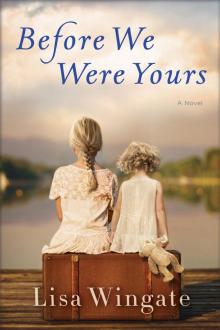 Before We Were Yours
Before We Were Yours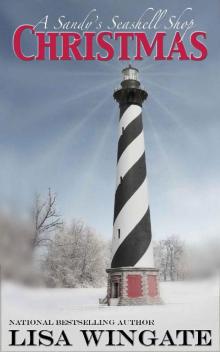 A Sandy’s Seashell Shop Christmas
A Sandy’s Seashell Shop Christmas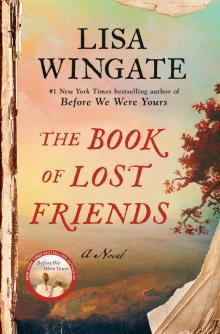 The Book of Lost Friends
The Book of Lost Friends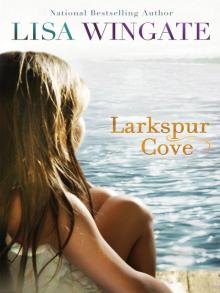 Larkspur Cove
Larkspur Cove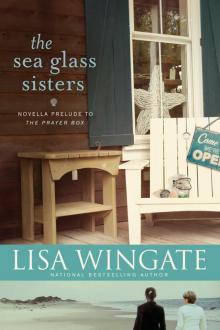 The Sea Glass Sisters
The Sea Glass Sisters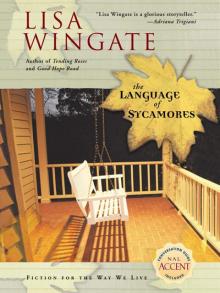 The Language of Sycamores
The Language of Sycamores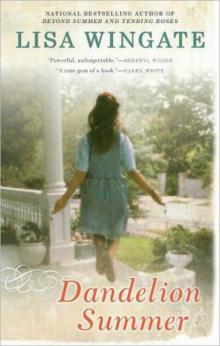 Dandelion Summer
Dandelion Summer Word Gets Around
Word Gets Around Beyond Summer
Beyond Summer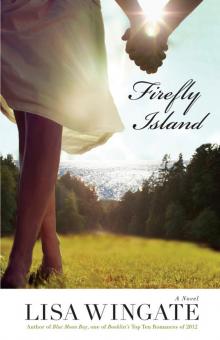 Firefly Island
Firefly Island The Tidewater Sisters: Postlude to The Prayer Box
The Tidewater Sisters: Postlude to The Prayer Box Talk of the Town
Talk of the Town![Blue Sky Hill [01] A Month of Summer Read online](http://i1.bookreadfree.com/i1/03/29/blue_sky_hill_01_a_month_of_summer_preview.jpg) Blue Sky Hill [01] A Month of Summer
Blue Sky Hill [01] A Month of Summer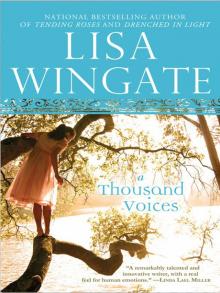 A Thousand Voices
A Thousand Voices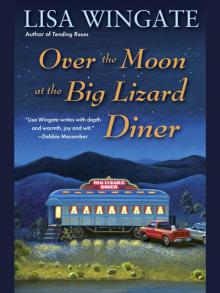 Over the Moon at the Big Lizard Diner
Over the Moon at the Big Lizard Diner Never Say Never
Never Say Never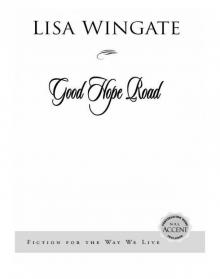 Good Hope Road
Good Hope Road The Summer Kitchen
The Summer Kitchen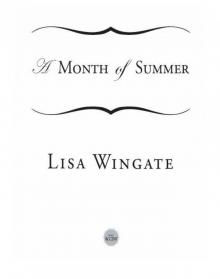 A Month of Summer
A Month of Summer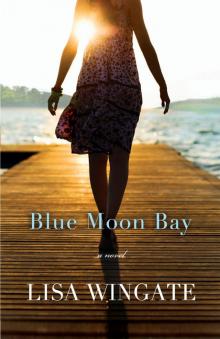 Blue Moon Bay
Blue Moon Bay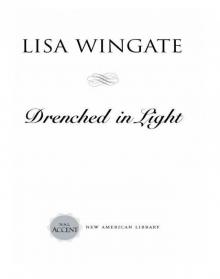 Drenched in Light
Drenched in Light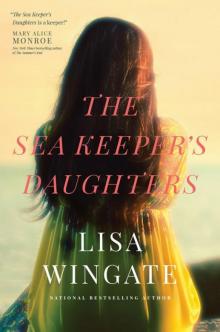 The Sea Keeper's Daughters
The Sea Keeper's Daughters